Born and raised in Germany, Simon Lieberum might seem like an unlikely candidate to be advocating for local kopi over Western coffee. But after a fateful encounter with his first cup of Kopi-C Peng, the man was a goner for the drink.
With a background in economics and international business, Simon has been in Singapore for over 10 years now, where he lives with his wife and two kids.
More than five years ago, he started NO HARM DONE. At the time, he was looking for a pursuit that could combine his personal values with everyday work, and he found the answer in sustainable alternatives for coffee capsules.
With a bootstrapped capital of S$1,000, NO HARM DONE began its market validation to prove whether the idea was valuable enough to be a full-fledged business.
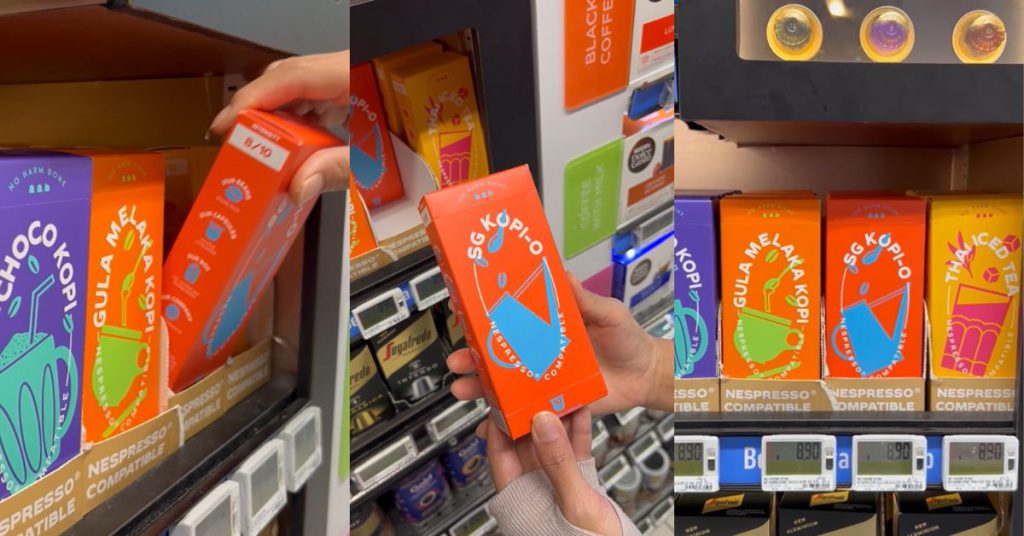
It certainly wasn’t a large sum, but it allowed the team to produce a small batch of coffee capsules as well as some boxes with a logo that was designed by a freelancer from a five-dollar website.
The team kept costs low by using free entry options for an online shop and email marketing software. As for marketing channels, they settled with platforms like Facebook.
“That was enough to start,” Simon said.
But the idea only truly took off when they began introducing local flavours. Demand was pouring in, and customer referrals were rampant. Simon knew he had something that added value to people’s lives and was worth his full-time commitment.
So, NO HARM DONE began its journey in 2018 with a very clear objective—providing Asian consumers an Asian alternative to Western coffee for their capsule machines.
Encapsulating the taste of local kopi
The team was able to produce a miminum viable product (MVP) rather quickly, Simon said. That’s because he believes the local kopi is already “perfect the way it is”.
“But making that taste profile come out of a tiny capsule was the tricky part,” he said.
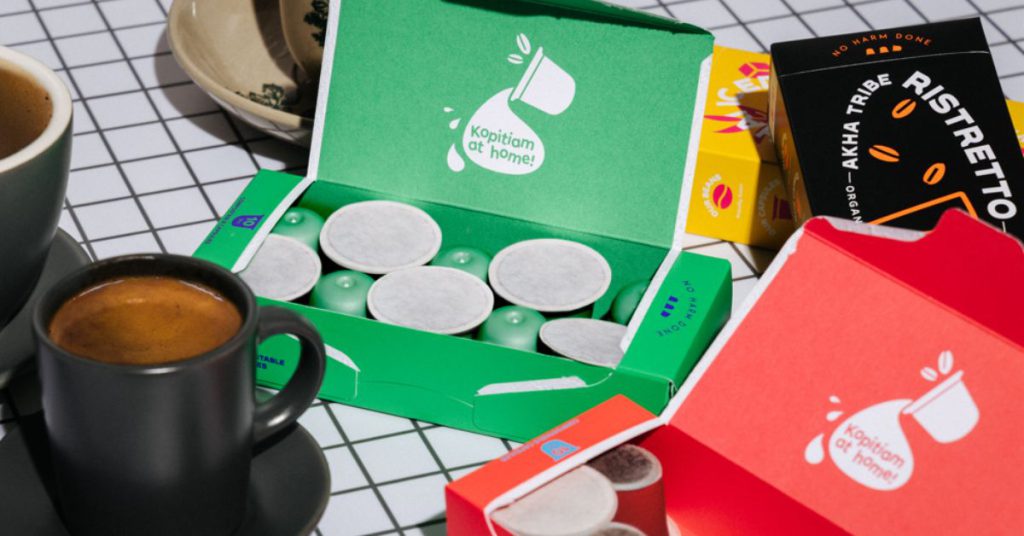
So why go the capsule route? Simon shared that this is because Asia-Pacific has been the fastest growing market for coffee capsules in the world.
Yet, the majority of this growth is based on the Western idea of coffee. Plus, these capsules are typically packed in unsustainable aluminium and plastic capsules.
“What’s the issue?” Simon wondered. “This region has its own wonderful idea of coffee and tea. We have unique products that are worth being cherished and protected.”
As such, NO HARM DONE seeks to address this mismatch in the market. More than just using local flavours, the product itself also made in Singapore.
“We source all our product ingredients from Asia,” Simon elaborated. “There is no need for us to ship coffees around the globe when we have great Asian coffees with minimal environmental footprint.”
Sustainability isn’t easy
On the topic of environmental footprint, it’s worth noting that NO HARM DONE is packed in compostable pods and recycled boxes. However, just because a product is recyclable doesn’t mean it’s actually being recycled.
This was a conundrum that NO HARM DONE recognised. To be genuinely sustainable and not just greenwashing, the team knew they had to ensure the onus of being sustainable is not just passed on to the consumer.
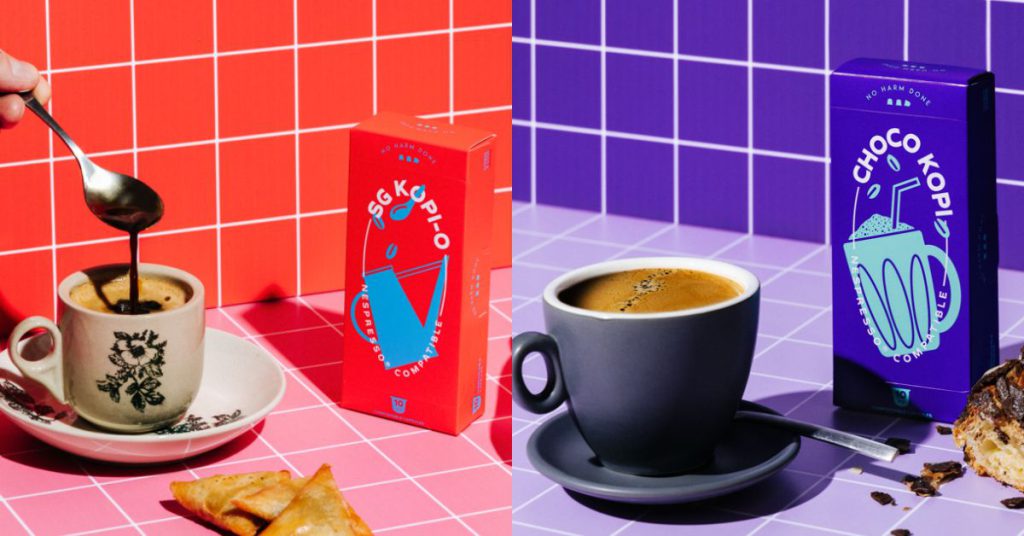
Thus, the team engaged with environmental consultants and industry experts, where they ended up facing two hard truths.
“Firstly, most people do not recycle. Secondly, collecting back and recycling may cause even more harm than not doing it,” Simon listed.
With this knowledge in mind, the team realised they needed a product that was free of harmful materials from the start to produce a clean product lifecycle, regardless of what happens at the end.
“If consumers would then go ahead and compost our 100% biobased capsules, that’s perfect, but even if just binned, the capsules would be as harmless as a disposed banana peel,” Simon explained.
With that, NO HARM DONE now presents itself as a proudly Asian and planet-friendly alternative to the Western coffee dominated capsule market.
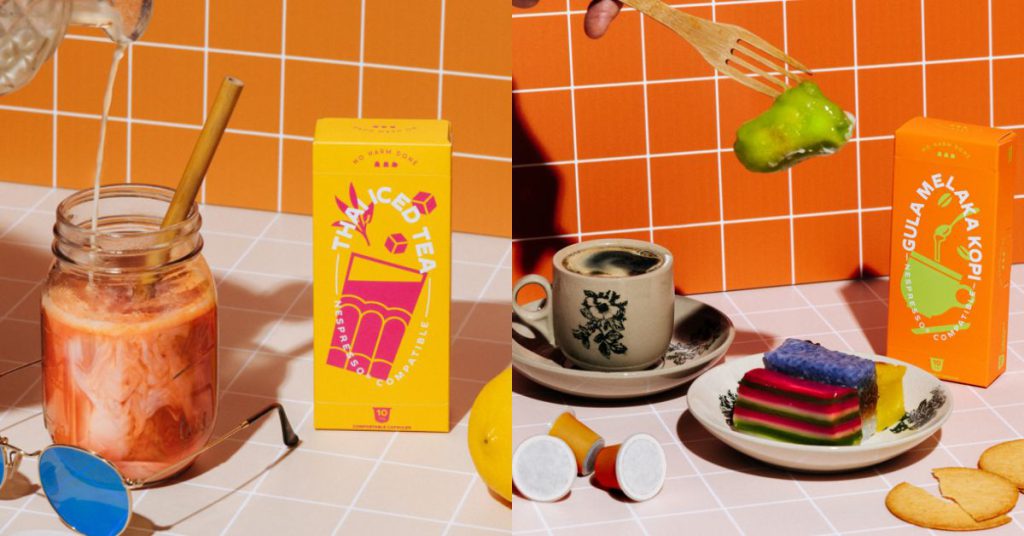
It offers a subscription service, made available through its website. Its products can also be found on Shopee, Lazada, and selected ColdStorage outlets.
For the first month of subscriptions, they charge as low as 54 cents per capsule. Meanwhile, a box of 10 capsules is S$8.90 in the supermarket.
Kopi for a cause
You might be familiar with the term “third-wave coffee” which was a movement in the industry that was all about high quality. Now that many consumers have already learnt to appreciate a good cup of coffee, it seems like a “fourth wave” is arriving.
Some also describe fourth-wave coffee to be more about accessibility, while others believe it’s about innovation. To Simon, this fourth wave of coffee is all about bringing back the fun.
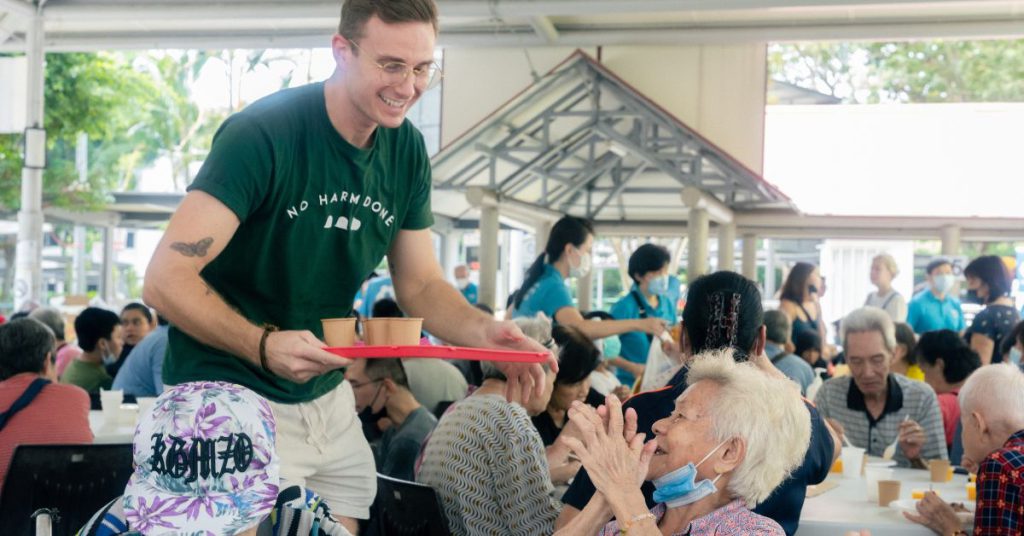
“Quality is a must but there is room for experimenting with new flavours and concepts with the younger generation of coffee drinkers,” Simon explained.
Aside from sustainability, NO HARM DONE also serves the local community, hiring seniors to keep them meaningfully engaged and socially connected.
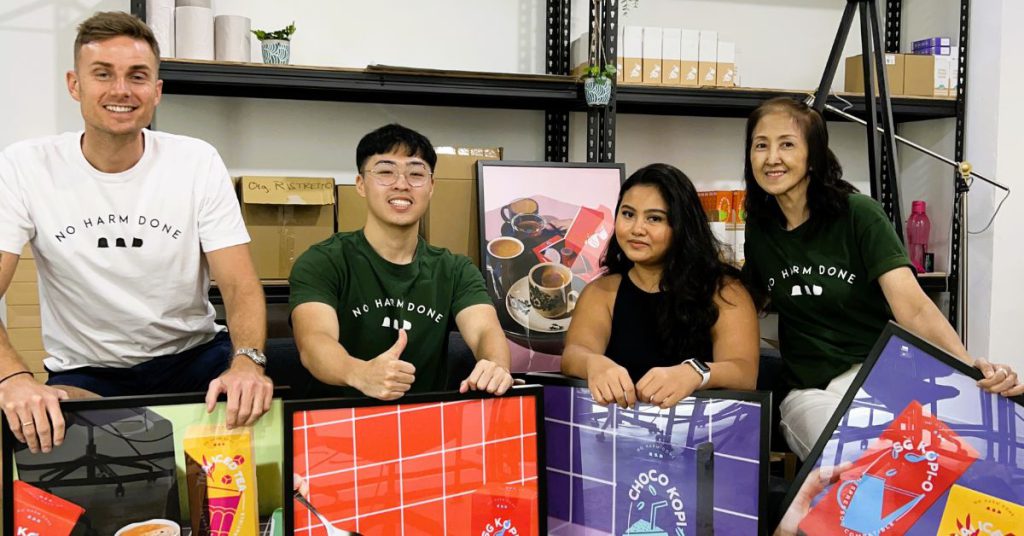
“Social isolation is one of the leading causes of suicide in the elderly,” Simon pointed out. “We want to help by bringing people who live alone together, over kopi, to share their stories, make friends and get the support they need.”
On weekends, NO HARM DONE serves free kopi to the socially isolated elderly of Lengkok Bahru. Calling the initiative “Kopi for a Cause”, this is done in partnership with The Saturday Movement, a charity that cares for the vulnerable and elderly.
A new way to enjoy
Going forward, Simon believes that an area where NO HARM DONE can offer a strong value proposition is hotels. This is as many hotels nowadays are looking to be more eco-friendly while offering a localised experience.
“I envision that premium hotels across Asia will be serving our authentically local coffee experience in planet-friendly capsules in their rooms instead of the same old unsustainable capsules imported from the West,” he shared.
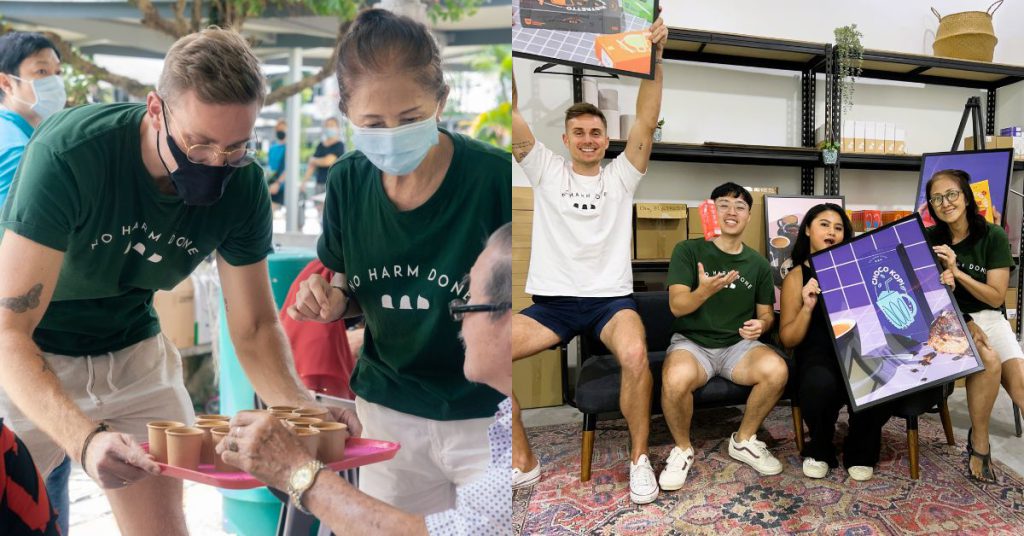
Simon also envisions bringing NO HARM DONE and the Singaporean kopi culture abroad. Compared to other regional drinks like Vietnamese coffee or Thai milk tea, though, Singaporean kopi hasn’t garnered as much international recognition.
But Simon doesn’t think this is a big concern when it comes to expansion, just that the team may have to adjust their approach.
“I can imagine that a vibrant, colourful store celebrating the best of Southeast Asian street drinks could be a total hit in New York, London, or Dubai,” he expressed. “We will figure that out later.”
For 2024, the team is already focused on bringing their products to Thailand and Indonesia.
As NO HARM DONE grows, though, we wonder whether or not the business would affect or even displace local hawkers who already offer traditional kopi drinks. To that, Simon believes that NO HARM DONE does not compete with local hawkers, but rather celebrates them.
“We take business back from Western coffee capsule conglomerates to celebrate the Asian beverage culture, support Asian grown coffee and tea, and protect our local environment from single use waste that pollutes our oceans.”
Also Read: You could win prizes worth up to RM238K when buying a home in these 5 townships by Feb 29
Featured Image Credit: NO HARM DONE










